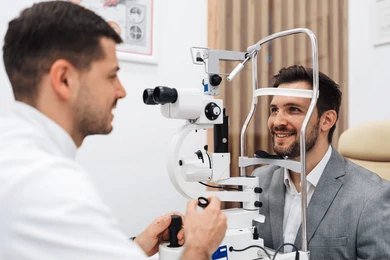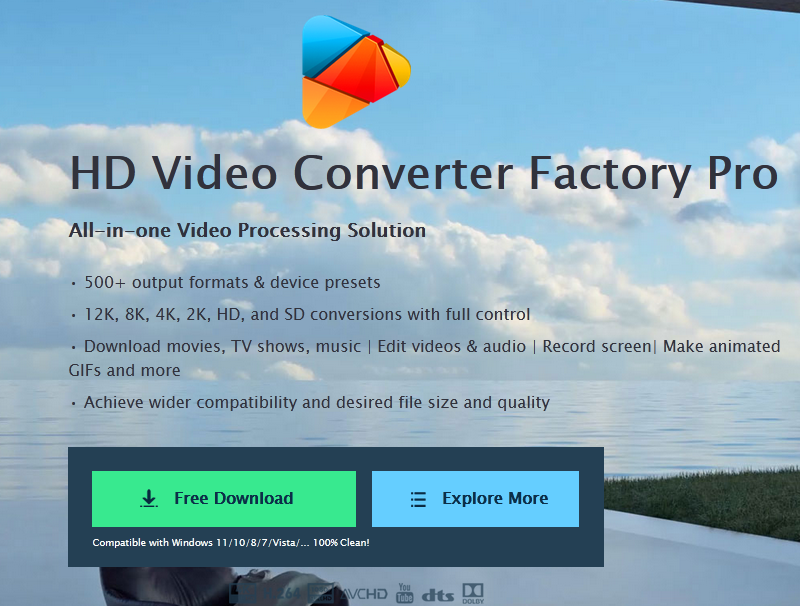Image Credit: Shutterstock
Finding the right eye doctor Fresno is crucial for maintaining optimal vision health. Regular eye exams and proper care can prevent serious conditions like glaucoma and ensure early detection of vision problems. With numerous options available, choosing the best eye doctor requires careful consideration of various factors.
When searching for an eye doctor, Fresno residents can trust, it’s important to understand the different types of eye care professionals and their specialties. This article will guide readers through the process of researching credentials, evaluating technology and services offered, and considering location and accessibility. By following these steps, individuals can make an informed decision to find an eye care provider who meets their specific needs, whether it’s for routine vision care, myopia control, or specialized treatments from a retina specialist. Additionally, some eye care providers may offer stylish accessories, such as classic sunglasses, to complement your eye health needs
Understand the Different Types of Eye Care Professionals
When seeking eye care in Fresno, it’s essential to understand the different types of professionals available. This knowledge helps patients choose the right specialist for their specific needs. Here are the steps to differentiate between the main types of eye care professionals:
Optometrists vs. Ophthalmologists
- Optometrists (ODs) are primary vision care providers. They complete a four-year optometry program after college to earn their Doctor of Optometry degree.
- Optometrists perform eye exams, prescribe corrective lenses, and diagnose certain eye conditions. They can also provide pre- and post-operative care for eye surgeries.
- Ophthalmologists are medical doctors (MDs) specializing in eye and vision care. They complete at least eight years of medical training after college.
- Ophthalmologists can diagnose and treat all eye diseases, perform eye surgeries, and prescribe medications. They also have the ability to prescribe and fit eyeglasses and contact lenses.
Specializations in Eye Care
- Some ophthalmologists further specialize in specific areas of eye care, becoming subspecialists. They undergo additional training in fields such as glaucoma, retina, cornea, or pediatrics.
- Specialized eye care professionals, like Dr. Belardinelli at 20/20 Optometric of Fresno, focus on advanced treatments such as vision therapy. This approach helps address specific vision issues and enhance visual skills.
- Retina specialists, available at clinics like Fogg Remington EyeCare, diagnose and treat retinal diseases such as age-related macular degeneration.
- Vision therapy specialists create customized treatment plans for conditions like amblyopia, strabismus, and binocular vision problems, using tools such as lenses, prisms, and digital exercises.
Understanding these distinctions helps patients in Fresno choose the most appropriate eye care professional for their needs, whether it’s for routine check-ups, specialized treatments, or complex eye surgeries.
Research Credentials and Experience
When searching for an eye doctor in Fresno, it’s crucial to investigate their qualifications and background. Here are steps to help patients make an informed decision:
Board Certifications
- Check the certification status of potential eye doctors. Board certification indicates a higher standard of patient care.
- Look for ophthalmologists listed as “Certified” by the American Board of Ophthalmology. This means they’ve completed verified medical training and a rigorous assessment of their knowledge and skills.
- Understand the certification status key:
- Board Eligible: Completed residency within the last seven years but not yet certified.
- Certified: Holds a certificate from the American Board of Ophthalmology.
- Not Certified: Not certified by the American Board of Ophthalmology.
- Consider the type of certification:
- Time-limited certificates require recertification every 10 years.
- Non-time-limited certificates were issued before 1992 but holders are encouraged to participate in continuing education.
Years of Practice
- Research the eye doctor’s educational background and training.
- Look for information about their medical degree, residency, and any specialized fellowships.
- Consider the length of time they’ve been practicing, as this can indicate experience and expertise.
Patient Reviews
- Search for patient reviews and ratings of the eye doctor.
- Pay attention to comments about the doctor’s ability to explain conditions, listen to patients, and answer questions.
- Look for reviews that mention the doctor’s trustworthiness and whether appointments feel rushed.
- Consider the overall rating and number of reviews to get a comprehensive picture of patient satisfaction.
By following these steps, patients can make a well-informed decision when choosing an eye doctor in Fresno.
Also Read:How to see who doesn’t follow you back on Instagram.
Consider Location and Accessibility
When choosing an eye doctor in Fresno, patients should consider the location and accessibility of the practice. Here are some steps to help make an informed decision:
Proximity to Home/Work
- Research eye care providers in the Fresno area, such as 20/20 Optometric of Fresno, Lifetime Optometric, and EYE-Q Vision Care.
- Consider the distance from home or work to these practices. For example, Eagle Eye Optometry is 3.7 miles away from a certain location, while 2020 Optometric is 5.0 miles away.
- Evaluate the convenience of each location based on personal transportation options and daily routines.
Office Hours
- Check the operating hours of potential eye care providers. For instance:
- 20/20 Optometric of Fresno: Monday to Friday 8:30am – 6:00pm, Saturday 9:00am – 2:00pm
- Lifetime Optometric: Monday to Friday 8:15am – 5:00pm (with variations)
- Consider practices with extended hours or weekend availability if needed.
- Note any lunch breaks or specific closures, such as Lifetime Optometric’s lunch break from 12:00-1:00pm Monday-Thursday and 12:00-12:30pm Friday.
Emergency Care Options
- Identify practices offering emergency eye care services, like Signature Spex-i-Wear Optometry.
- Look for providers who can accommodate same-day appointments for urgent cases.
- Save emergency contact numbers, such as (559) 486-2000 for EYE-Q Vision Care.
- Familiarize yourself with the types of eye emergencies that require immediate attention, such as foreign objects in the eye or sudden vision loss.
- Follow proper emergency care guidelines, such as not attempting to remove foreign objects or rubbing injured eyes.
By considering these factors, patients can choose an eye doctor in Fresno that best suits their location and accessibility needs.
Evaluate Technology and Services Offered
When choosing an eye doctor in Fresno, it’s crucial to assess the technology and services they offer. Here are steps to evaluate these aspects:
Advanced Diagnostic Equipment
- Look for practices with state-of-the-art diagnostic imaging equipment. For instance, The Eye Medical Center of Fresno has advanced tools for comprehensive eye exams.
- Check if the eye care center uses modern technology for detecting retinal diseases, glaucoma, and other eye conditions.
- Inquire about the availability of specialized equipment for diagnosing and treating specific eye problems like diabetic retinopathy or macular degeneration.
Treatment Options Available
- Research the range of services offered by different eye care providers in Fresno. For example, EYE-Q Vision Care provides comprehensive eye care for all age groups.
- Consider centers that offer specialized treatments such as LASIK, cataract surgery, and glaucoma management.
- Look for practices that provide both routine eye exams and advanced surgical procedures. Fogg Remington EyeCare, for instance, offers services from basic eye exams to state-of-the-art microsurgery.
- Check if the eye care center has expertise in treating specific conditions like amblyopia, blepharitis, or retinal detachment.
- Evaluate if the practice offers emergency eye care services and has doctors on call for urgent situations.
- Consider centers that participate in clinical trials for new therapies, as this indicates their commitment to advancing eye care treatments.
By following these steps, patients can ensure they choose an eye doctor in Fresno who has access to advanced technology and offers a wide range of services to meet their specific eye care needs.
Conclusion
Selecting the right eye doctor in Fresno is crucial to maintaining optimal vision health. This process involves understanding the different types of eye care professionals, researching their credentials and experience, considering location and accessibility, and evaluating the technology and services offered. By taking these steps, patients can make an informed decision that meets their specific eye care needs, whether it’s for routine check-ups or specialized treatments.
FAQs
What types of eye care professionals are there?
- Optometrists (ODs): Provide primary vision care, perform eye exams, and prescribe corrective lenses.
- Ophthalmologists (MDs): Medical doctors specializing in all aspects of eye care, including surgeries and disease management.
- Specialists: Includes retina specialists, glaucoma specialists, and vision therapy experts.
2. How do I verify an eye doctor’s credentials?
Check their board certification status with the American Board of Ophthalmology. Certified doctors have completed rigorous training and assessments. Consider their years of practice and patient reviews as well.
3. What should I consider when choosing an eye doctor’s location?
Consider proximity to your home or work, office hours, and emergency care availability. Choose a practice that fits your schedule and offers convenience in case of urgent needs.
4. What technology should an eye doctor have?
Look for advanced diagnostic equipment, such as imaging tools for detecting retinal diseases and glaucoma. Evaluate the range of services and specialized treatments offered to ensure comprehensive care.




